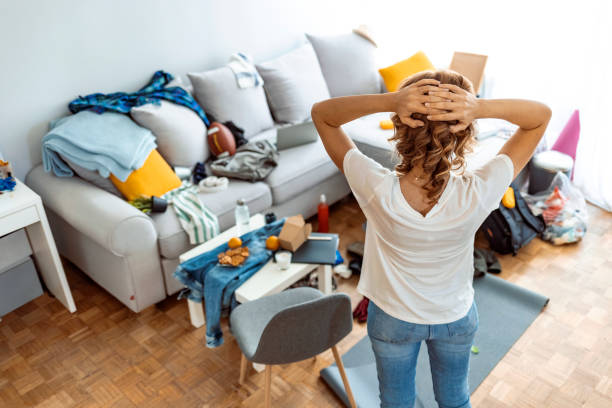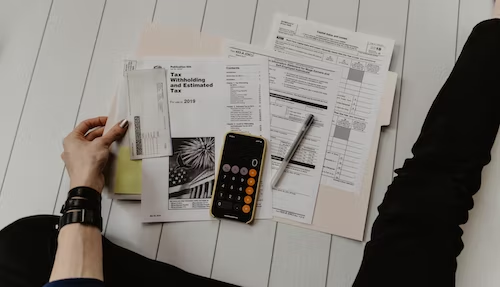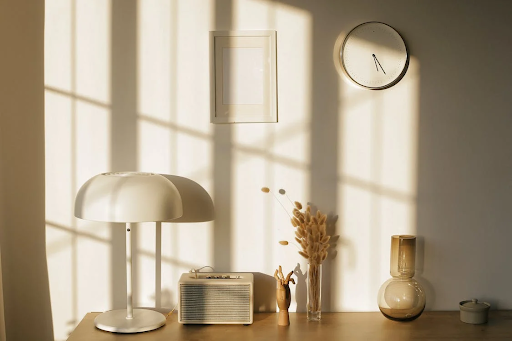The Impact of Clutter on Mental Well-being
Cluttered Space and Mental Health
Living in a cluttered space can have a significant impact on our mental well-being. The state of our environment can greatly affect our mood, productivity, focus, and overall sense of happiness. When our surroundings are filled with clutter, it can create a constant source of stress and anxiety.
Research has shown that cluttered spaces can make it harder for us to relax and unwind. The visual overload can overwhelm our senses and prevent us from feeling calm and centered. This can lead to increased levels of stress, which can negatively impact our mental health over time.
Additionally, clutter can make it difficult for us to find things we need, leading to feelings of frustration and helplessness. It can also be a constant reminder of unfinished tasks or unresolved issues, contributing to a constant state of mental clutter.
Clutter can also have a detrimental effect on our ability to focus and concentrate. A cluttered environment can create distractions and make it harder for our brains to filter out irrelevant information. This can affect our productivity and hinder our ability to complete tasks effectively.

Organizational Habits for Mental Well-being
Developing organizational habits can help promote mental well-being and reduce the negative effects of clutter. By taking steps to create a more organized space, we can create a more peaceful and harmonious environment for ourselves.
One of the first habits to cultivate is to designate a place for everything. When everything has a specific place, it becomes easier to keep track of our belongings and avoid unnecessary clutter. Creating storage systems, such as shelves, drawers, and bins, can help us keep everything organized and easily accessible.
It is also important to regularly declutter and remove items that are no longer needed or bring value to our lives. This can involve letting go of sentimental items, reevaluating our possessions, and avoiding unnecessary purchases. Regularly decluttering can help us create more space and reduce the feeling of overwhelm in our environment.
Another helpful habit is to implement daily cleaning routines. Spending a few minutes each day tidying our space can prevent clutter from building up and becoming overwhelming. This can include activities such as making the bed, cleaning dishes, and putting things back in their designated places.
Maintaining a clutter-free environment also involves being mindful of our shopping habits. It can be helpful to evaluate the necessity and purpose of an item before purchasing it. By practicing mindful consumption, we can avoid accumulating unnecessary clutter and create a healthier relationship with our belongings.

Decluttering Tips for a Healthier Mind
Decluttering can be a challenging task, but the benefits it brings to our mental well-being are worth the effort. Here are some tips to help you get started:
- Start small: Begin by decluttering one area at a time. This could be a drawer, a shelf, or a specific room. Breaking the task into smaller, more manageable parts can make it less overwhelming.
- Set goals: Define what you want to achieve with your decluttering efforts. Whether it's creating a more organized workspace or simplifying your living area, having a clear goal in mind can keep you motivated and focused.
- Sort and categorize: As you declutter, sort items into categories such as keep, donate, or discard. This can help you make decisions more efficiently and prevent items from being unnecessarily kept.
- Create a system: Establish a system for organizing your belongings that works for you. Whether it's using labeled bins, color-coding, or digital organization tools, find a method that suits your needs and preferences.
- Practice gratitude: As you declutter, take a moment to appreciate and express gratitude for the things you decide to keep. This can help cultivate a positive mindset and reinforce the value of meaningful belongings.
- Seek support: Decluttering can be an emotional process, so it's important to seek support if needed. Reach out to friends or family members who can provide encouragement and assistance throughout the process.
- Maintain the habit: Once you've decluttered your space, make a conscious effort to maintain an organized environment. Regularly assess your belongings and continue practicing the organizational habits you've established.
By implementing these organizational habits and decluttering tips, you can create a space that promotes mental well-being and allows you to thrive. Remember, a clutter-free environment can contribute to a clearer mind, increased productivity, and a greater sense of calm and contentment.




